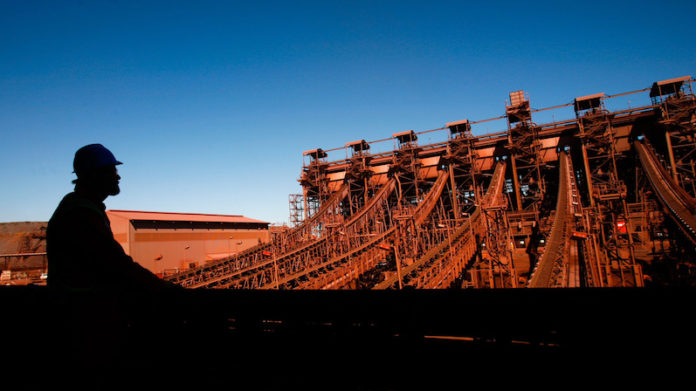
KUMBA Iron ore has shelved plans to increase production saying that following a business review this year output will be flat from 2024 to 2026.
Mpumi Zikalala, CEO of Anglo American said the review was to accommodate the drastic decline in performance of Transnet Freight Rail (TFR), South Africa’s state-owned ports and rail company. Railed ore had fallen 15% since 2019, she said.
“There is no escaping the fact that ongoing logistics constraints have continued to place significant pressure on our value chain, resulting in stock levels at the mines increasing to unsustainable levels,” said Zikalala.
Duncan Wanblad, CEO of Anglo American which owns about 70% of Kumba, was blunter. “We are stock-bound,” he said adding that Kumba’s Ebitda for 2024 would have been “much better” were it not for TFR difficulties.
He was also outspoken about the South African government’s attempts to fix TFR’s difficulties: “Our view is that it will take time for conditions to improve,” he said during a conference call on Friday morning.
There was more bad news as TFR’s shortcomings had forced Kumba to slow production this year resulting in higher-than budgeted costs. Iron ore production would come in at between 35 and 36 million tons (Mt).
Sishen’s unit cost is anticipated to increase to between R570 – 590 per tonne (previously R540 – 570 per tonne). Kolomela’s unit cost is expected to increase to between R480 – 500 per tonne (previously R510 – 540 per tonne). Unit costs would come in at $42/t, an improvement on the previous forecast of $43/t.
The development of processing technology known as Kumba’s ultra high dense media separation (UHDMS) plant, which had been sent back by parent Anglo American for review nearly two years ago, would be submitted for board approval in mid-2024. It had been subject to further reviews so as to incorporate the firm’s changed mine plan.
In terms of the three year production plan, Kumba would produce 35 to 37Mt a year compared to previous guidance for output of 37 to 39Mt next year and between 39 and 41Mt in 2025. Unit costs would improve to between $38 to $40/t over three years.
Capital expenditure was expected to remain at about R5bn a year including this year following the rephasing of the firm’s Kapstevel South expansion and the ongoing review of the UHDMS plant.
“The state of South Africa’s rail and port network is resulting in significant losses of revenue for many sectors of the economy and is depriving the country’s fiscus of much-needed taxes,” said Zikalala.
But the group said it remained hopeful that private/public sector technical cooperation in terms of the Ore User’s Forum would result in improvements at TFR as well as the possible improvement in performance once “new leadership” was installed at Transnet, TFR’s parent company following the resignation of its former CEO earlier this year.
Zikalala said he was also “encouraged by the constructive efforts of the National Logistics Crisis Committee in promoting public sector partnership through the Freight and Logistics Roadmap”.










